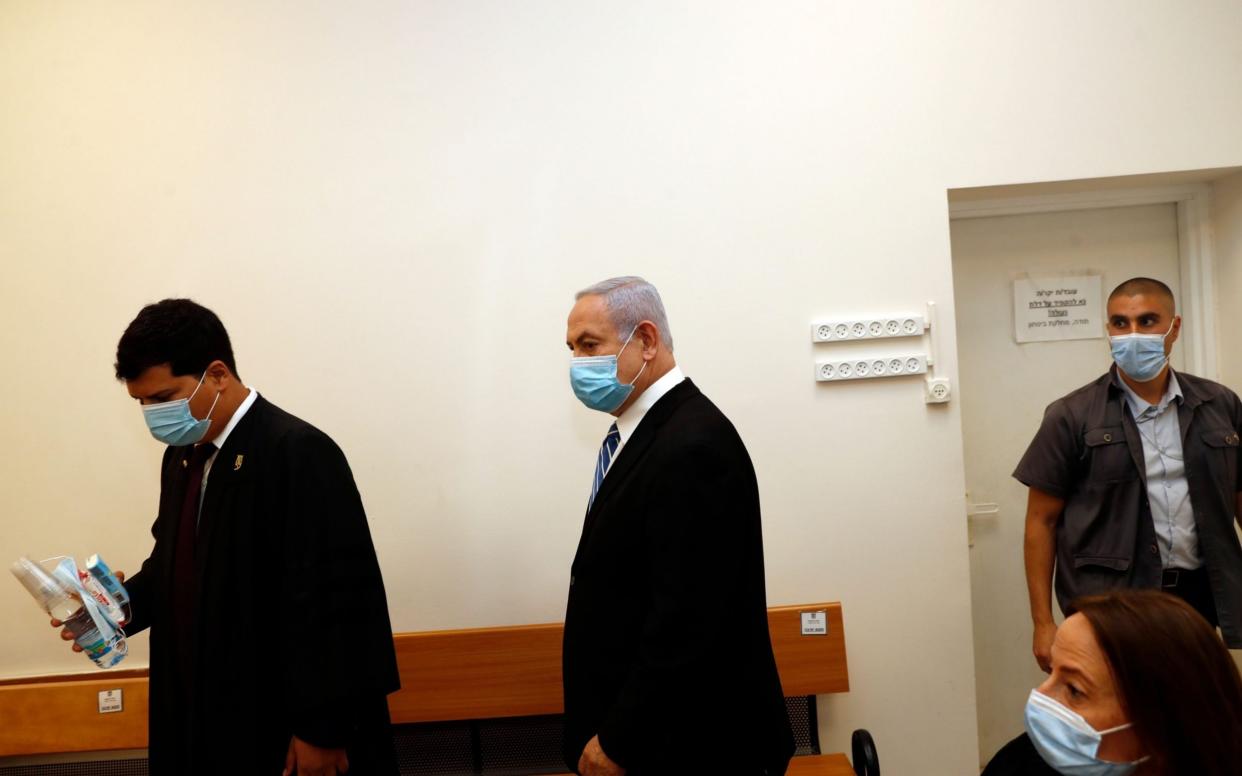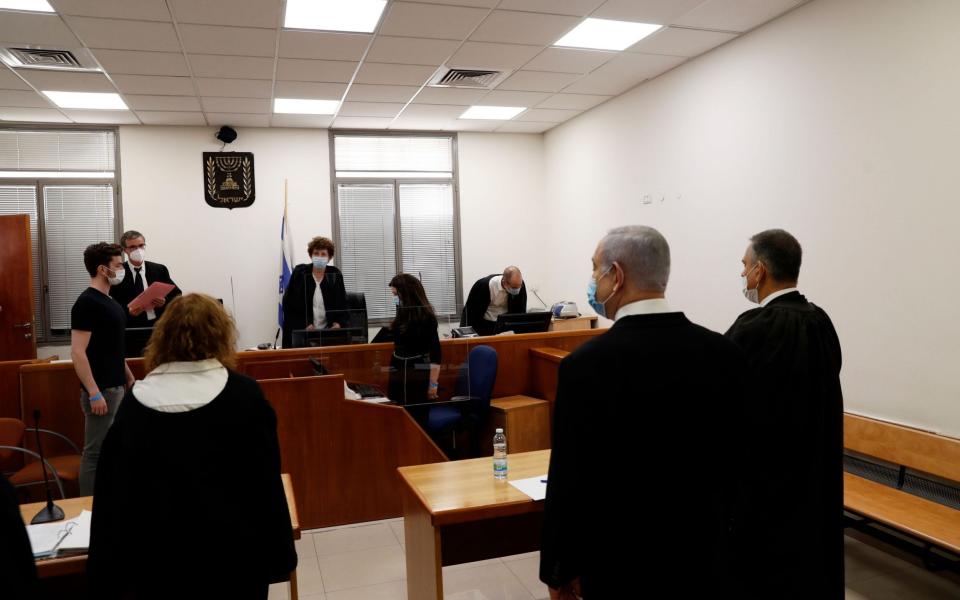Benjamin Netanyahu in the dock as Israeli prime minister's historic corruption trial begins

A defiant Benjamin Netanyahu raged against attempts to "topple" him on Sunday as he became Israel's first sitting prime minister to appear in the dock on criminal charges.
Dressed in a dark suit and light blue-tie, Mr Netanyahu spoke only to confirm that he understood the charges against him during the long-awaited opening session of his corruption trial.
All participants in the 50-minute hearing, including Mr Netanyahu and the judges, were ordered to sit two metres apart and wear face masks as protective measures against the coronavirus.
The prime minister is accused of committing fraud, breach of trust and accepting bribes worth more than one million shekels (£232,000) and, if convicted, could be sentenced to a decade in prison.
In a statement before the hearing, as crowds of his supporters and opponents gathered outside the courthouse in Jerusalem, Mr Netanyahu claimed: “The objective [of this trial] is to topple a strong, right-wing prime minister.”
He added: “I stand here with straight back and head held high. I’ll continue to lead the State of Israel.”
Mr Netanyahu vehemently denies all of the charges, which he has dismissed as a politically motivated “witch-hunt” led by Israeli police officers, prosecutors, judges and media figures.
“While the media continues to deal with nonsense, with these false, trumped up cases, I will continue to lead the state of Israel and deal with issues that really matter to you," he said.
The Israeli prime minister’s opponents have waited for years to watch him endure the humiliating spectacle of sitting in court as a criminal suspect.
Mr Netanyahu’s lawyers had attempted to avoid this with a last-minute request for him to be absent from the hearing, arguing that he did not want the public to foot the vast bill for his bodyguards and other security expenses.
Though that request was struck down, the prime minister was told that he would not be required to attend future hearings of the case, which is likely to drag on for several years.
Mr Netanyahu had previously tried to pass a law that would grant him immunity from prosecution, but this failed due to a lack of support in the Knesset, the Israeli parliament.

The hearing itself was supposed to have already taken place in March but was postponed due to the coronavirus pandemic.
Israeli commentators wryly observed that the historic court hearing was nowhere to be found on the prime minister’s official schedule for Sunday, May 24.
The trial follows three years of investigations into Mr Netanyahu’s conduct in high office, as well as the country’s worst political crisis in its history, which spanned three inconclusive elections.
Those polls were styled as a referendum on Mr Netanyahu’s aggressive and divisive political style, but his arch-rival, Benny Gantz, failed to clinch victory.
Instead the two leaders joined forces in a national unity government, even though Mr Gantz’s main appeal to voters was that he claimed to be the only man capable of removing Mr Netanyahu from power.
Under the terms of that deal, Mr Netanyahu will remain prime minister for the next 18 months, at which point Mr Gantz will take over and serve for the same time period.
Mr Netanyahu will not be legally required to step down during the trial despite the severity of the charges and, if convicted, he would then have the option of going through a lengthy appeals process.
His lawyer, Eyal Rozovsky, also represented former Israeli prime minister Ehud Olmert, who was jailed for taking bribes after stepping down from the leadership.
Outside the courthouse, anti-Netanyahu protesters called on him to resign and labelled him “crime minister.”
Meanwhile, a group of Netanyahu supporters, including senior members of his ruling Likud party, reiterated the claim that he was the victim of a witch-hunt.
"We won't allow an image of Netanyahu being humiliated," said Ran Carmi Buzaglo, one of the pro-Netanyahu protesters.
"The only reason that they forced him to come here, even though the law allows him to be absent, is to show an image of him in the defendant's chair."


